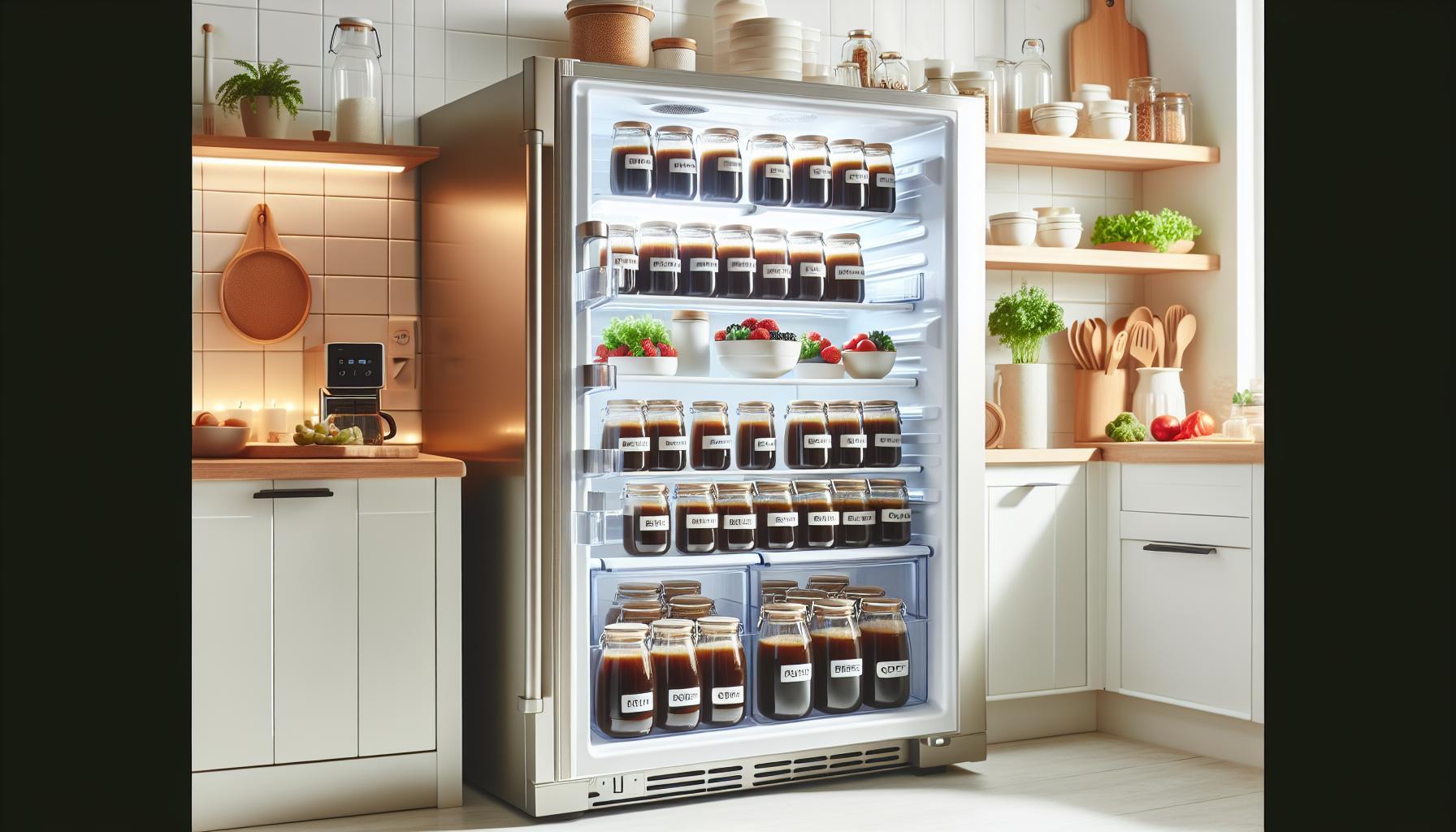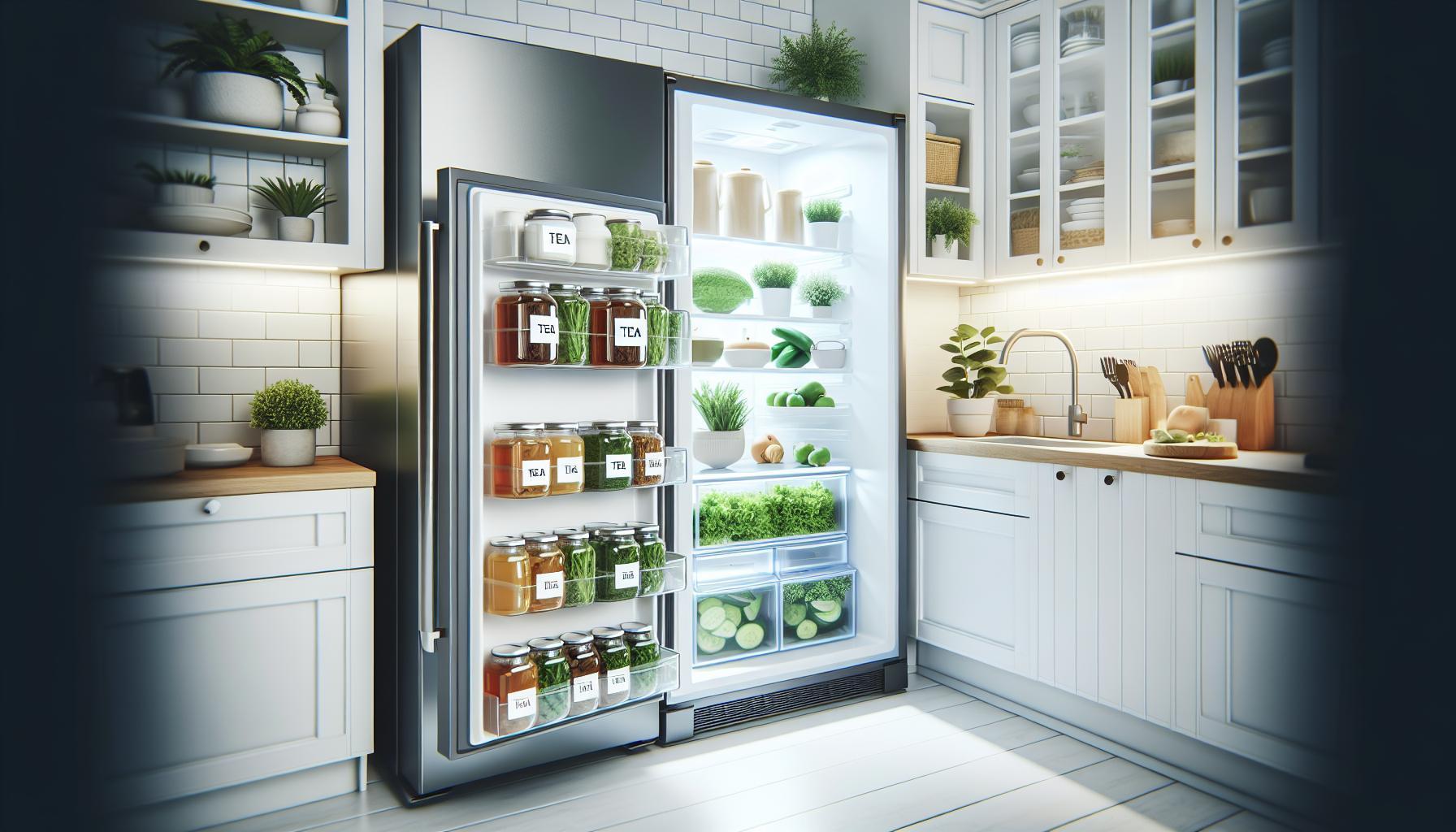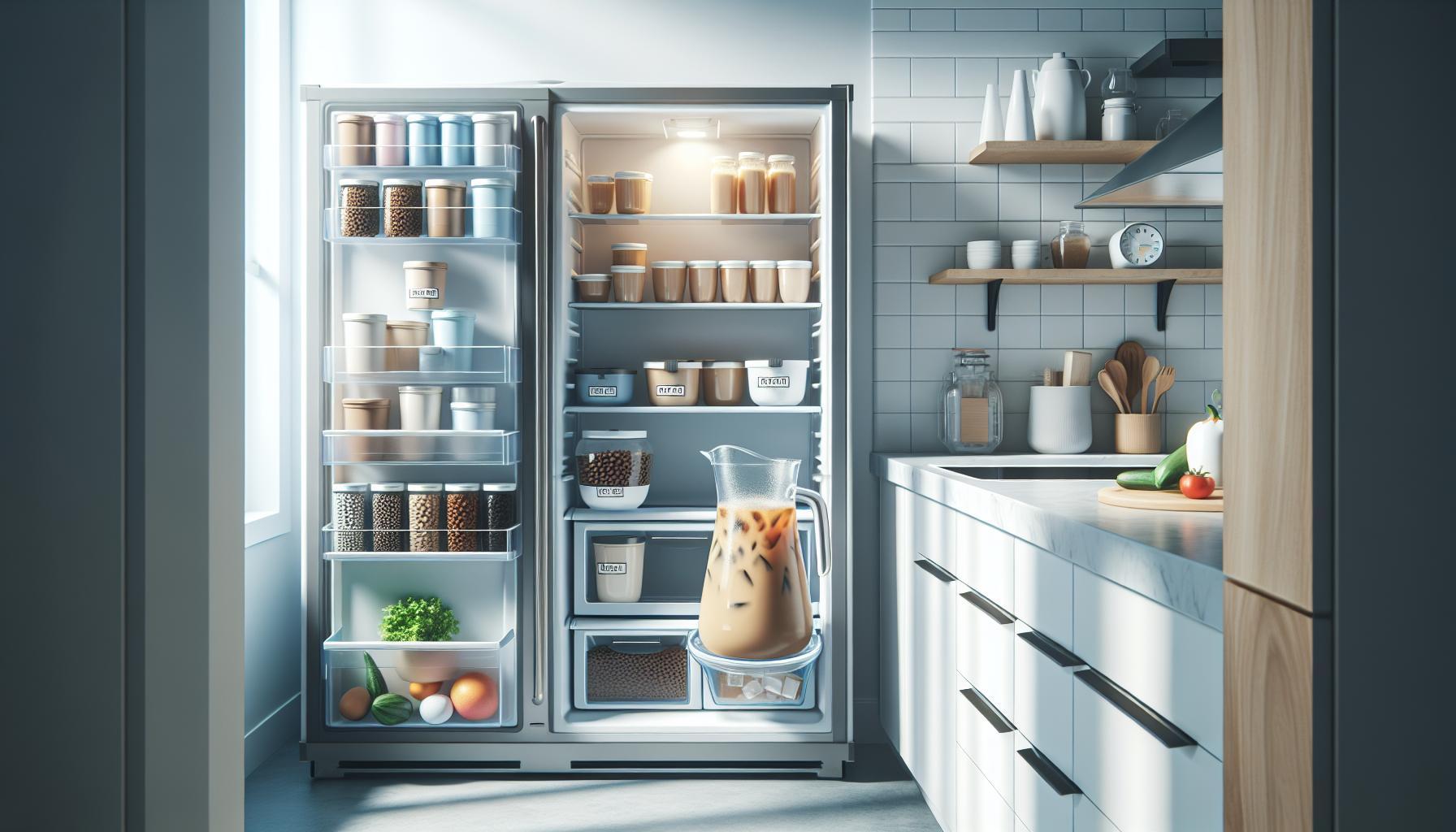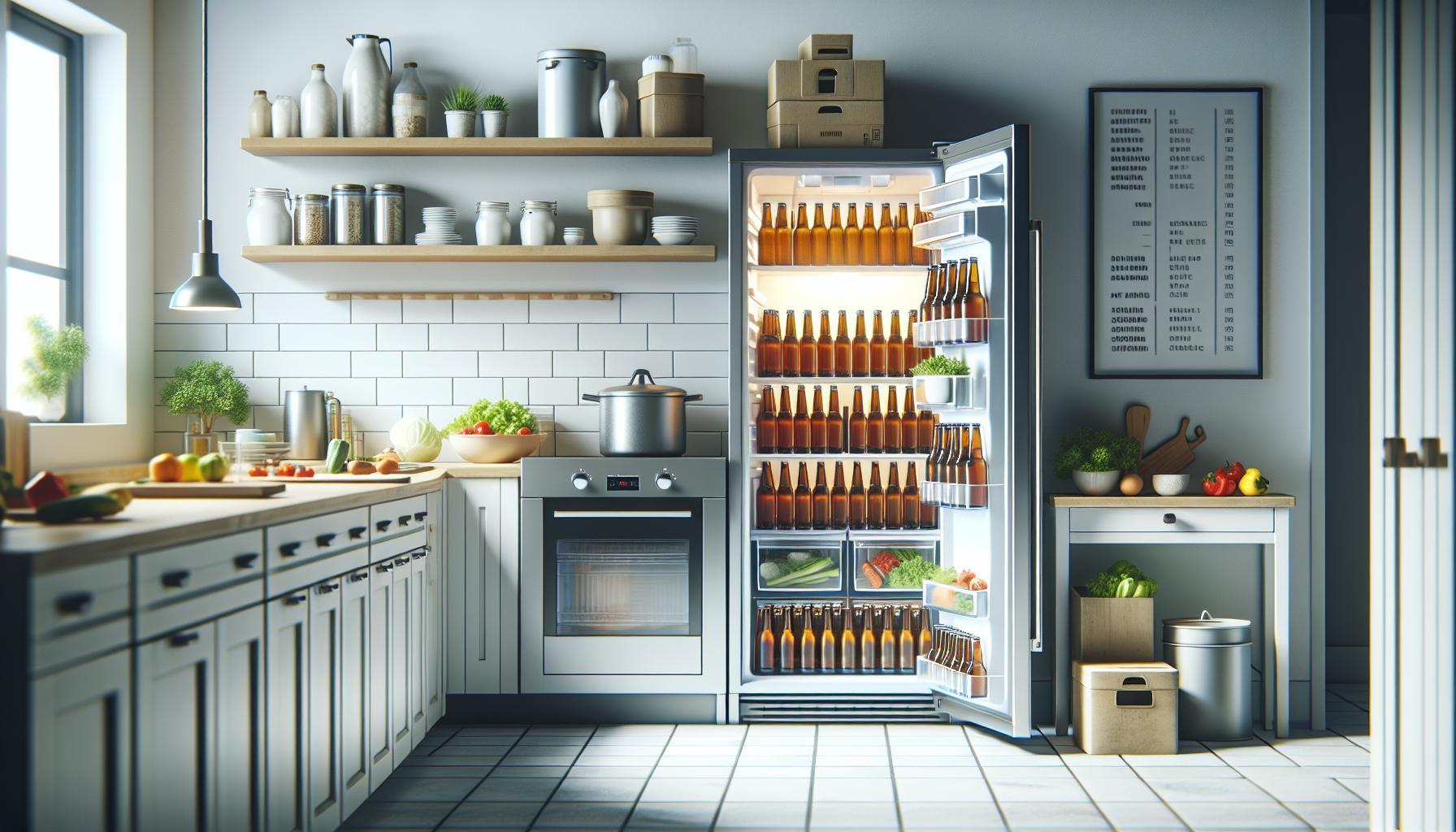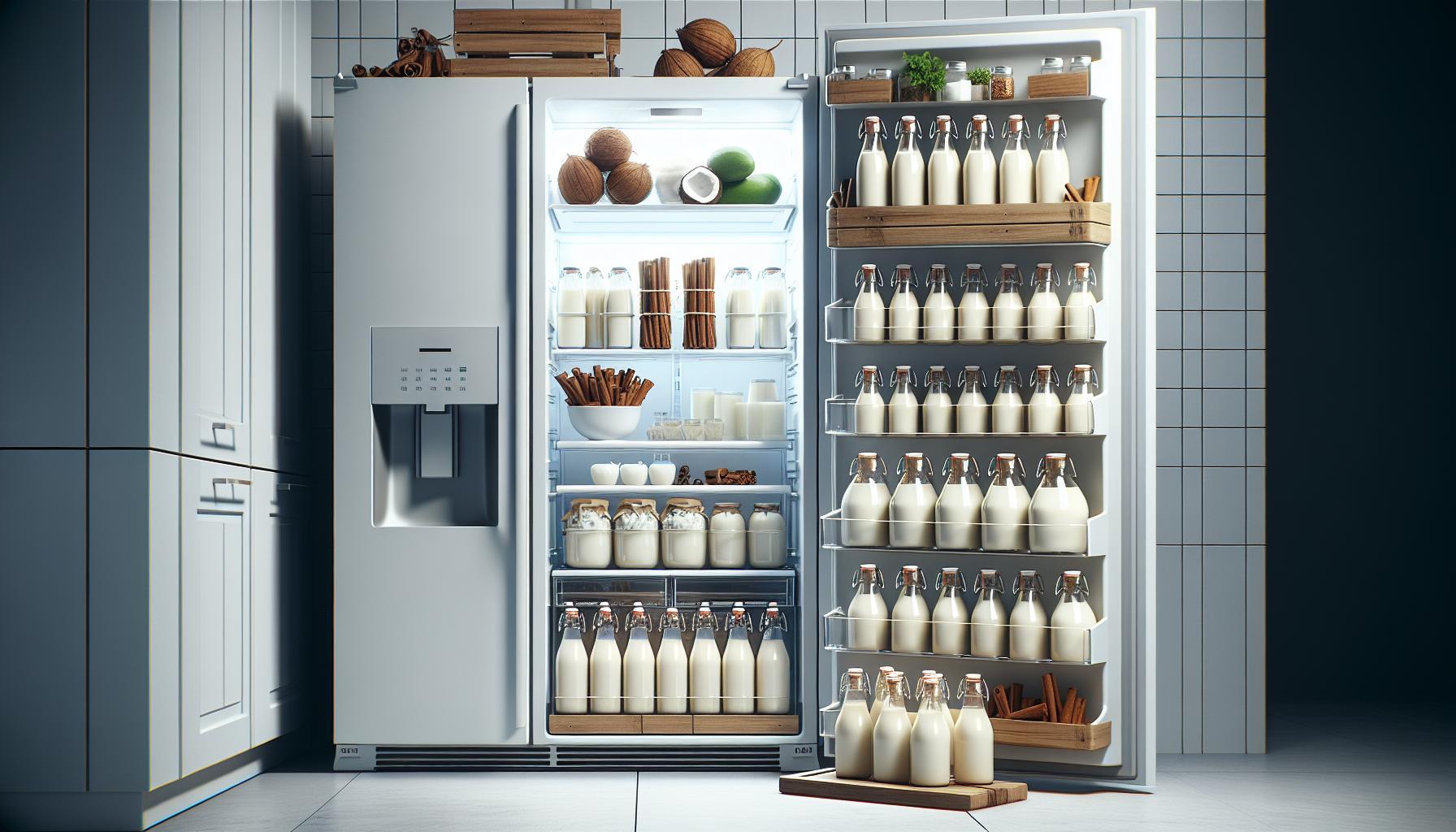Did you know that brewed coffee can actually last in your fridge for a few days, but its quality can diminish quickly? Whether you’re trying to stretch out your morning brew or avoid waste, knowing how long brewed coffee stays fresh in the fridge is crucial for every coffee lover.
As you navigate through your busy days, it’s easy to make a pot of coffee and forget about it. But with proper storage techniques, you can maintain its flavor and aroma for a bit longer. Understanding the lifeline of your coffee not only helps in enjoying your favorite beverage at its best but also in practicing safe food choices.
Stay tuned as we dive into essential storage practices and timeframes that will keep your brewed coffee flavorful while ensuring you make informed decisions about what to sip-and what to toss. Your perfect cup of coffee is just a few tips away!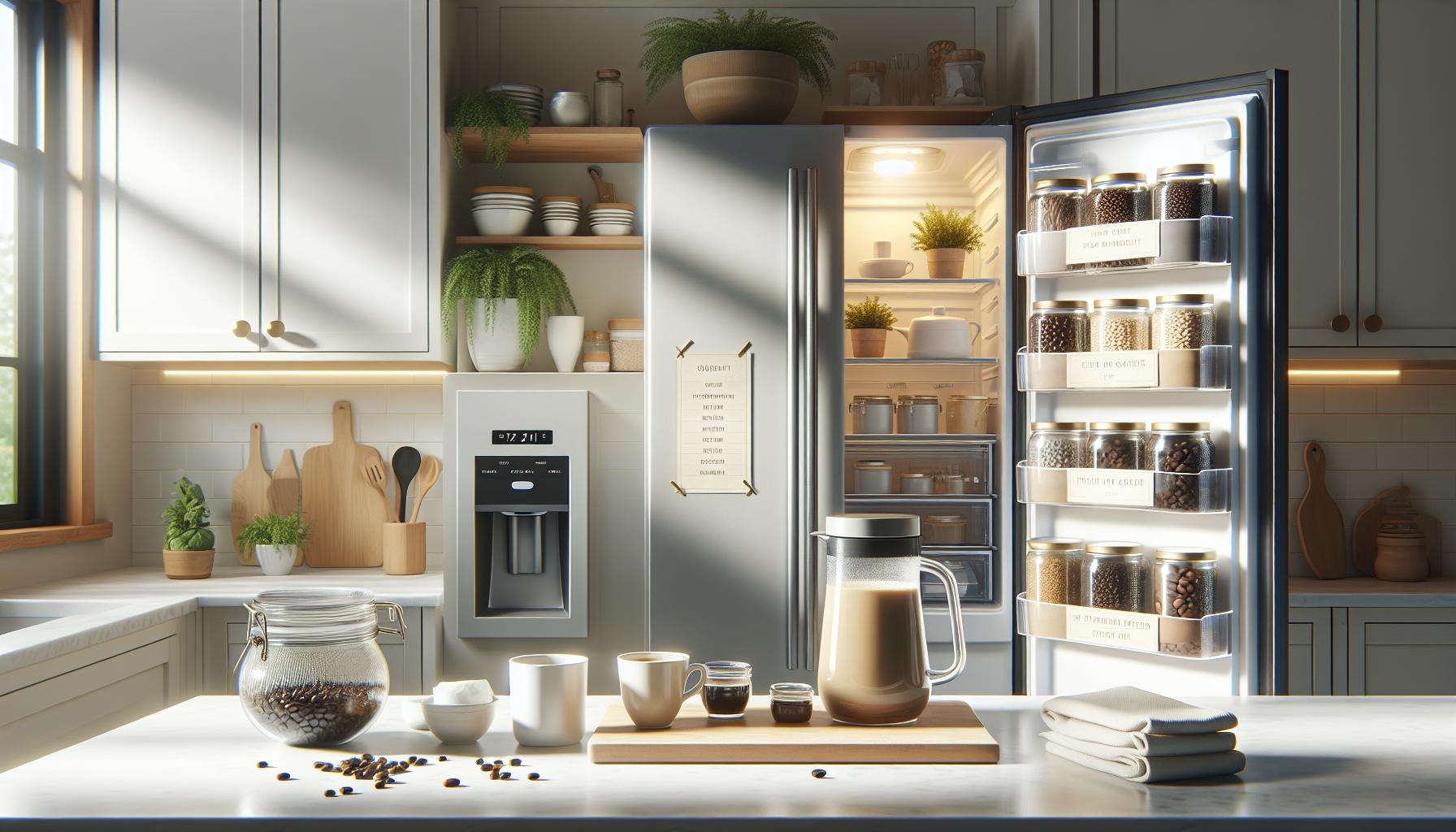
How Brewed Coffee’s Freshness Declines Over Time
Brewed coffee is a delightful experience, but its freshness has a ticking clock. Once brewed, coffee begins to lose its optimal flavor and aroma almost immediately. The factors that contribute to its quick deterioration include exposure to air, light, temperature, and humidity. When coffee is brewed, its volatile compounds start to evaporate, causing the once vibrant flavors to fade. This decline can be observed within just 30 minutes to an hour after brewing, particularly if left on a hot plate where oxidation is accelerated.
To maintain brewed coffee’s freshness as long as possible, storage conditions play a critical role. If you need to keep your coffee for a short duration, using an insulated container can help delay the cooling and oxidation process. Ideally, brewed coffee should be consumed within 1 to 2 hours for the best taste. However, if necessary, refrigeration can extend its life to about 3 to 4 days, although you may notice a decline in flavor quality. Always store it in a tightly sealed container to minimize air exposure, which is crucial for retaining those delightful coffee notes.
It’s important to recognize when your brewed coffee is past its prime. Dull or flat flavors, an off smell, or signs of separation are clear indicators that it’s time to discard the brew. While it may be tempting to salvage older coffee, it’s best to err on the side of caution to avoid any unpleasant aftertastes or potential food safety issues. Understanding these elements can enhance your coffee drinking experience and ensure that every sip is enjoyable.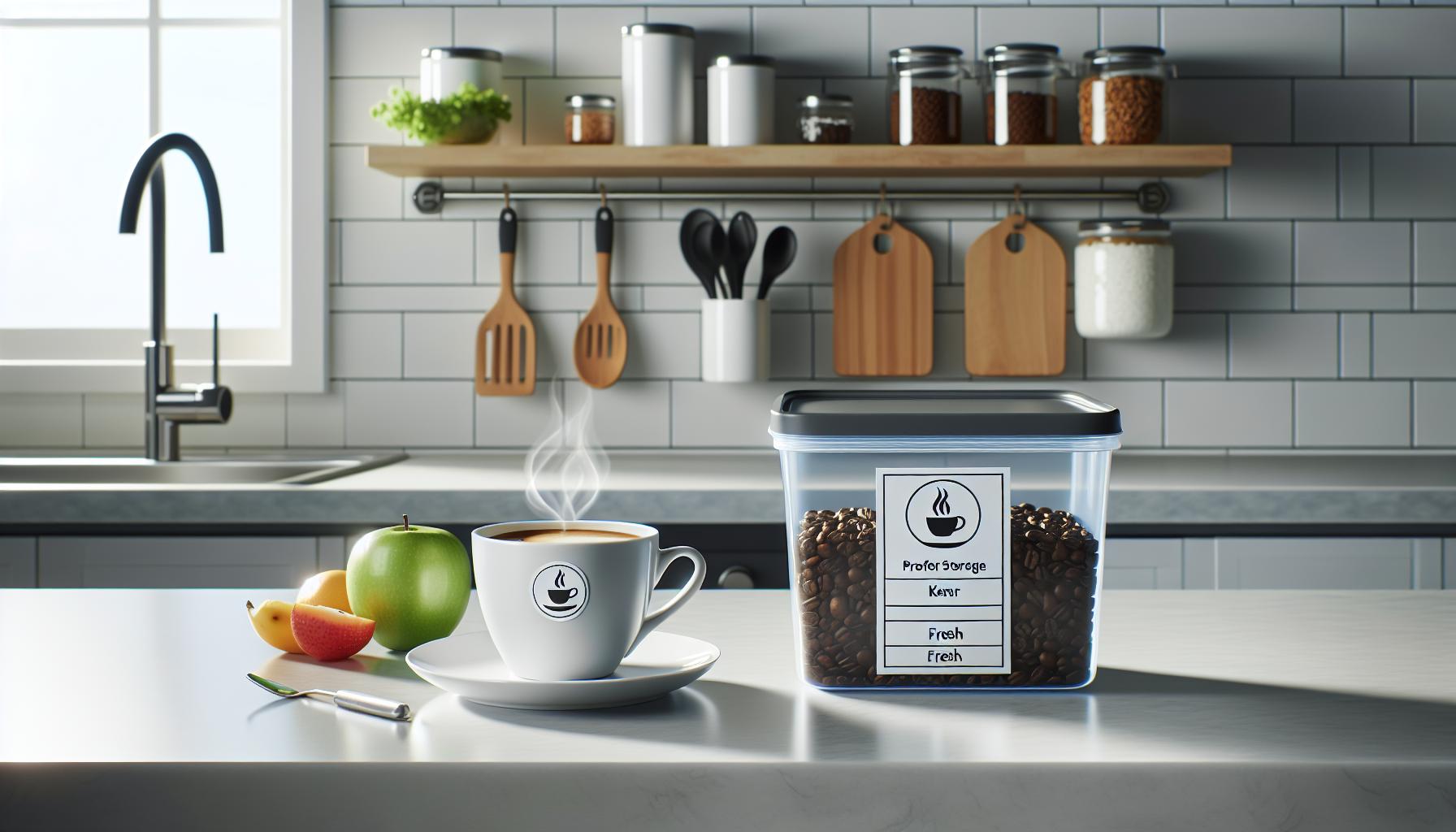
Ideal Storage Conditions for Brewed Coffee
Storing brewed coffee properly is essential to preserving its flavor and aroma, especially if you plan to enjoy it later. One of the most effective ways to maintain coffee’s freshness is through careful selection of the storage container and environment. A vacuum-sealed, insulated thermos or carafe is an excellent choice for short-term storage, as it minimizes temperature fluctuations and limits exposure to air, which can accelerate oxidation. Always ensure that the container is kept in a cool, dark place away from direct light or heat sources, as these elements can further degrade the quality of your coffee.
When considering refrigeration to prolong freshness, it’s recommended to use a tightly sealed container. This approach can extend the life of your brewed coffee for about 3 to 4 days. However, keep in mind that while refrigeration can prevent spoilage, it may result in a notable drop in flavor quality. For an optimal experience, it’s preferable to consume your brewed coffee within 1 to 2 hours after preparation. If you must refrigerate, try to transfer the coffee to an airtight container as soon as possible after brewing to retain its delicate notes as much as possible.
A key aspect of maintaining coffee’s charm is to avoid repeatedly reheating it. Each exposure to heat can further deteriorate flavor, leading to bitter undertones. Instead, it’s better to store brewed coffee in smaller portions; this way, you only need to reheat what you plan to consume at a time. When reheating, do it gently either in the microwave or on the stove, monitoring the temperature to minimize flavor loss.
In summary, a combination of appropriate container choice, storage location, and mindful reheating practices is crucial to enjoying fresh-tasting brewed coffee even days after it was made. By following these guidelines, you can savor each cup as if it were freshly brewed, ensuring that every sip is nothing short of delightful.
Signs That Your Coffee Has Gone Bad
Detecting when brewed coffee has gone bad is crucial for both safety and enjoyment. Stale or spoiled coffee can affect your health and ruin your morning ritual, so understanding the signs of decline is key. Freshly brewed coffee boasts a vibrant aroma and rich flavor, but as it ages, these characteristics diminish significantly. Keep an eye out for the following indicators that your coffee has passed its prime.
One of the most noticeable signs of bad coffee is an off smell. Freshly brewed coffee emanates a robust and inviting aroma; however, if your coffee smells flat, sour, or musty, it’s a strong indication that it’s no longer fresh or safe to consume. Additionally, if you notice any separation or cloudiness in your coffee, this can signal spoilage. While brewed coffee might naturally settle over time, a frothy or oily surface can be a sign of bacterial growth, especially if it has been stored in the fridge for more than a few days.
Moreover, the taste of the coffee will also provide clues to its freshness. If you take a sip and are met with bitterness or an unpleasant sour note, it’s time to discard the brew. Stale coffee can develop undesirable flavors, caused by oxidation and the breakdown of its compounds, making it an unpleasant option even if it hasn’t spoiled in a safety sense. Typically, brewed coffee is best consumed within 1 to 2 hours after brewing, while refrigerated coffee can remain drinkable for about 3 to 4 days, but this varies based on conditions.
In summary, trust your senses when evaluating brewed coffee. Look for changes in smell and appearance, and conduct a taste test if you have any doubts. If your coffee exhibits any signs of spoilage, it’s always safest to err on the side of caution and dispose of it. Ensuring that you drink coffee at its best not only enhances the experience but also keeps your morning routine safe and enjoyable.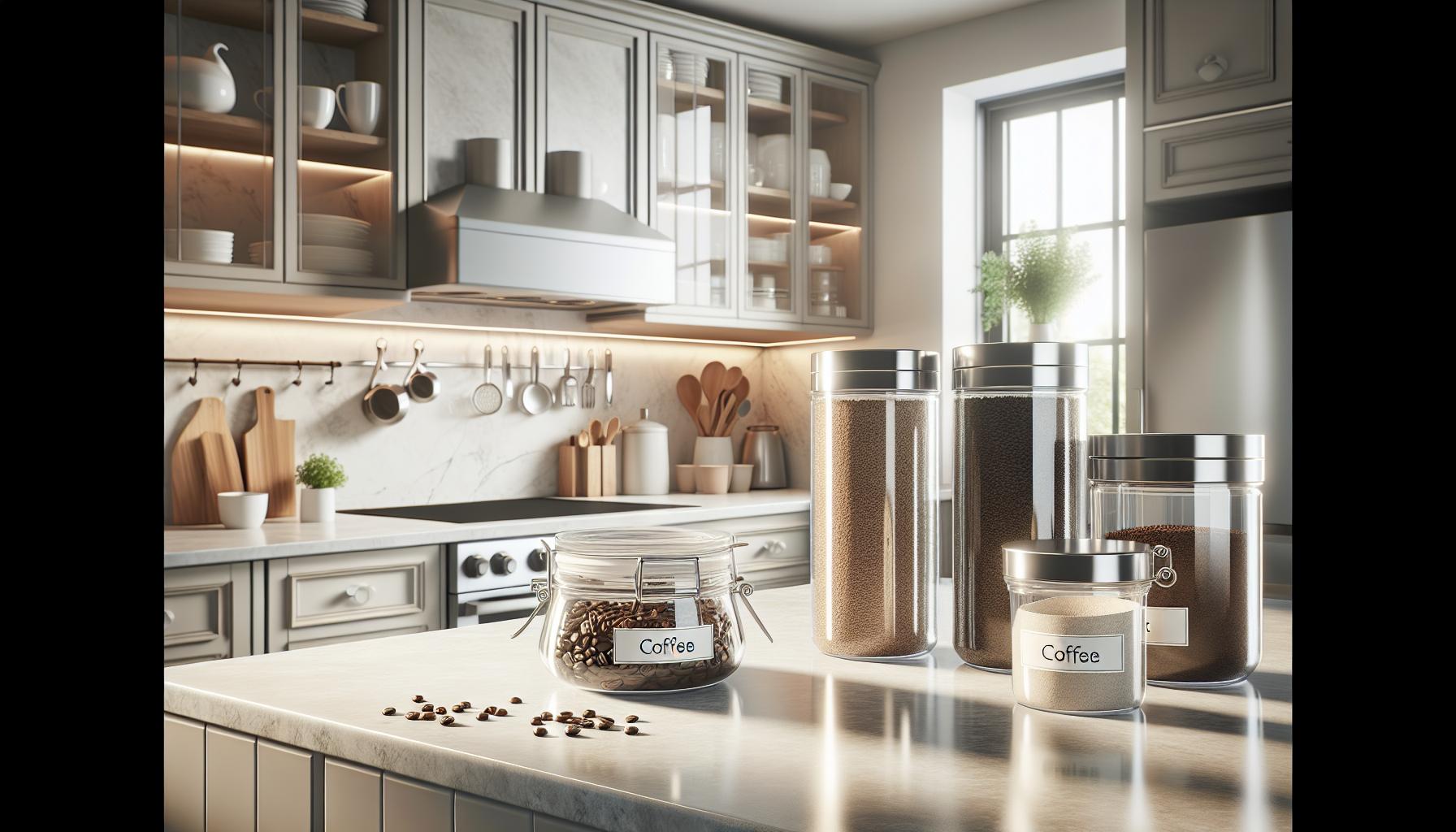
Maximizing Flavor: Best Practices for Coffee Storage
To enjoy the full flavor profile of brewed coffee, effective storage practices are essential. The way you store your coffee can significantly affect its taste, aroma, and overall freshness. Here are some best practices to help you maximize flavor and ensure your brewed coffee remains enjoyable longer.
Firstly, consider storage container choices. The ideal vessel for brewed coffee is an airtight container that shields it from light, air, and moisture. Glass or stainless-steel containers with sealing lids are excellent options. Avoid keeping brewed coffee in its original thermos if it’s not insulated, as this can expose it to air and lead to quicker flavor degradation. If you plan to refrigerate the coffee, pour it into a container with a lid to minimize oxygen exposure.
Maintaining optimal refrigerator conditions is also important. When stored in the fridge, brewed coffee should be consumed within 3 to 4 days for the best taste. Keeping the temperature consistent helps inhibit bacterial growth and preserve freshness. At this point, it is wise to keep coffee away from strong-smelling foods, as coffee can absorb flavors and odors, leading to a less pleasant drinking experience.
Furthermore, consider the reheating process, as this can elevate or diminish your coffee’s flavor. Reheat coffee gently on the stove or in the microwave, ensuring not to boil it as high temperatures can alter its taste. A quick tip: adding a splash of fresh cream or milk just before reheating can revitalize flavors and create a delightful taste experience.
Lastly, always assess the coffee’s appearance and aroma before consuming. If your brewed coffee has developed a dull or sour scent, or if any signs of separation or cloudiness occur, it’s best to err on the side of caution and discard it. Always taste a small sip to gauge freshness before pouring a full cup.
By following these guidelines, you can help ensure that your brewed coffee remains rich and flavorful, allowing you to savor every drop from the first sip to the last.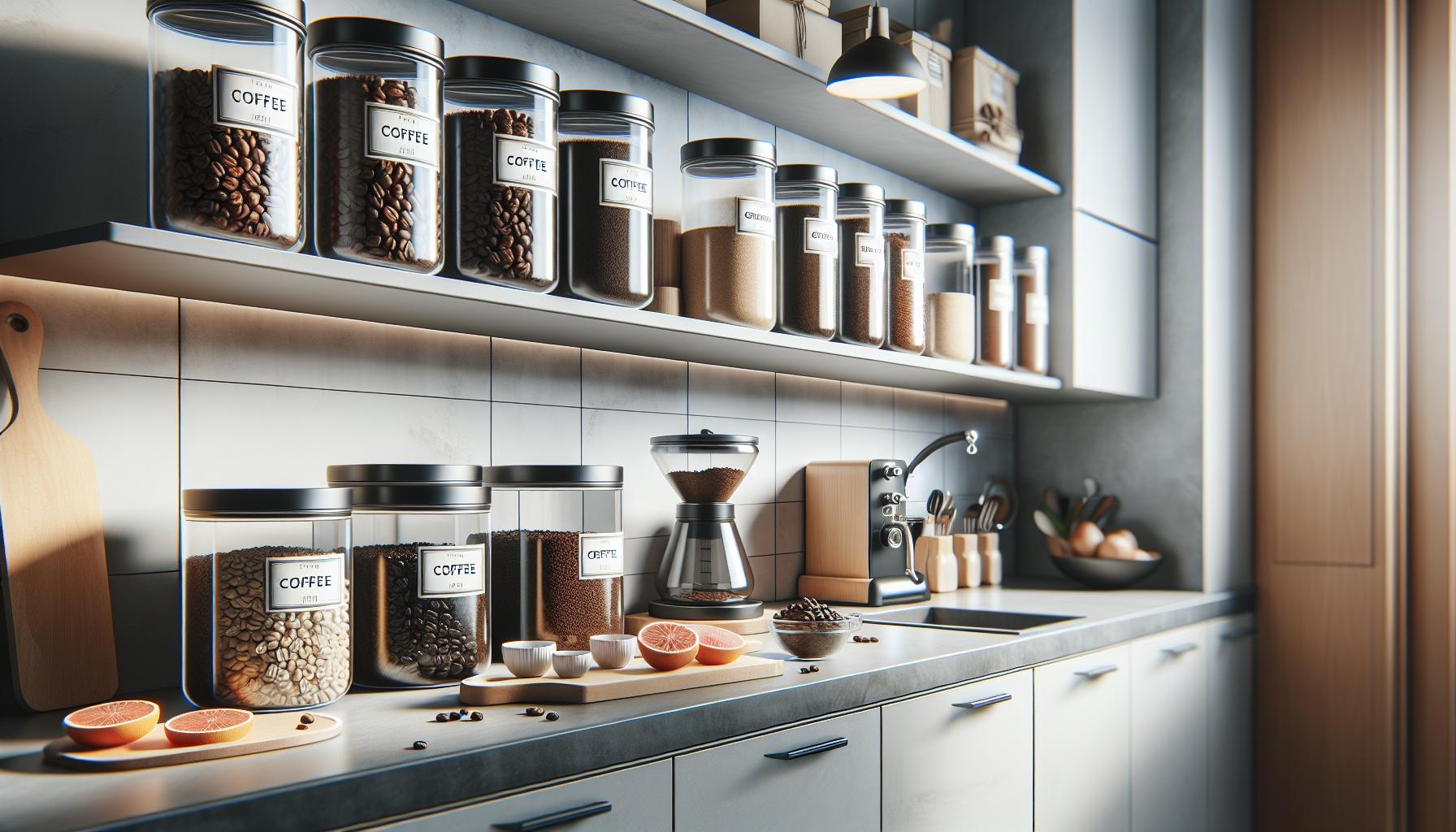
How to Reheat Brewed Coffee Without Losing Flavor
To maintain the delightful flavor of brewed coffee, reheating it properly is crucial, especially if it has been stored in the fridge for a few days. When cooled, coffee can develop a different taste profile, but reheating can revitalize its charm if done with care. The key is to avoid methods that sidestep the integrity of the original brew.
One effective method for reheating is on the stovetop. Pour your chilled coffee into a small pot and set it over low to medium heat. Stir it gently as it warms to ensure an even temperature and prevent scorching. This method allows for greater control over the heat, reducing the risk of altering the flavor through overheating. If you prefer the microwave, use a microwave-safe mug and heat in short intervals of 30 seconds, stirring in between. This helps to promote even heating and minimizes the risk of boiling, which can lead to bitterness.
Another tip to enhance the flavor during reheating is to consider adding a splash of fresh cream or a bit of sugar just before warming. This not only combats the potential bitterness from sitting in the fridge but also introduces a creamier texture and richer taste. However, be mindful not to overdo it; start with small amounts and adjust based on your taste preference.
Ultimately, the goal is to reintroduce warmth without compromising the coffee’s original essence. With proper technique, you can enjoy your brewed coffee even days after it was made, ensuring that each sip remains as enjoyable as the first.
The Safety of Consuming Old Brewed Coffee
Brewed coffee is a delightful beverage that many cherish for its rich flavor and energizing properties. However, the question of safety regarding the consumption of older brewed coffee often arises. Generally, brewed coffee can be safely stored in the fridge for up to one week. After this timeframe, the risk of spoilage increases, and while it may not immediately pose a health threat, the quality and taste will likely decline significantly.
To ensure that your brewed coffee remains safe to drink, always store it in a clean, airtight container. This minimizes exposure to air and prevents the absorption of odors from other foods in the fridge. It’s also essential to keep your refrigerator at a proper temperature, ideally below 40°F (4°C). Consuming coffee that has been on the shelf for longer than a week is not recommended, as it may develop off-flavors and could be a breeding ground for bacteria.
There are a few signs to watch out for when assessing whether your coffee has gone bad. Look for changes in aroma, such as a sour or rancid smell, and observe any unusual coloration or separation in the liquid. If your coffee produces a strange taste or texture, it’s best to discard it. In terms of safety, while old coffee might not cause immediate harm, drinking spoiled beverages can lead to gastrointestinal discomfort or foodborne illness.
If you’re ever uncertain about the freshness of your brewed coffee, it’s better to err on the side of caution. Always trust your senses-taste and smell can often provide reliable indicators of the coffee’s safety and quality. Make it a habit to check your brewed coffee regularly, and when in doubt, don’t hesitate to make a fresh pot.
Can You Freeze Brewed Coffee?
Freezing brewed coffee can be a practical solution if you’re looking to extend its shelf life while retaining its flavor. However, it’s essential to recognize that not all coffees freeze well, and proper techniques are vital to achieve the best results. When stored correctly, frozen brewed coffee can maintain its quality for up to two months, making it a convenient option for busy coffee lovers or those who prepare larger batches.
To freeze brewed coffee effectively, start by allowing it to cool completely. Pour it into an airtight container or sealable freezer bag, ensuring you leave some space at the top to accommodate expansion as it freezes. For better portion control, consider using ice cube trays to freeze smaller amounts. Once frozen, transfer the coffee cubes to a freezer bag for easy access. This method allows you to thaw only what you need without exposing the entire batch to air, which could compromise its flavor.
When it comes time to reheat your frozen coffee, avoid using a microwave, as this can lead to uneven heating and a significant loss of flavor. Instead, place the frozen cubes in a saucepan over low heat or let them thaw in the refrigerator overnight. For an added twist, use the coffee ice cubes instead of regular ice in your iced coffee; as they melt, they won’t dilute your drink.
While freezing brewed coffee is a practical option, some flavors may diminish over time. Therefore, enjoy your freshly brewed coffee first and reserve the frozen stash for days when you need a quick caffeine fix without a full brewing session.
Exploring the Shelf Life of Different Coffee Types
The shelf life of different coffee types varies significantly, impacting how long you can enjoy your brewed coffee without sacrificing flavor or quality. Understanding these differences is essential for maintaining a delightful coffee experience.
Brewed coffee generally lasts about 3 to 4 days when stored properly in the refrigerator. However, the exact duration can fluctuate based on the coffee type. For instance, cold brew coffee can retain its flavor for up to two weeks in the fridge due to its lower acidity and the brewing method, which minimizes oxidation. Conversely, regular brewed coffee typically shows signs of staleness and off-flavors after about five days, even when refrigerated.
Comparative Shelf Life of Coffee Types
| Coffee Type | Shelf Life in Fridge | Notes |
|---|---|---|
| Brewed Coffee | 3-4 days | Show signs of staleness afterward |
| Cold Brew Coffee | Up to 2 weeks | Lower acidity extends freshness |
| Freshly Ground Coffee | 1-2 weeks (in an airtight container) | Flavor diminishes after the first week |
| Whole Bean Coffee | 2-3 weeks for optimal flavor | Best stored in a dark, cool place |
When evaluating the shelf life of instant coffee, it’s worth noting that it can last much longer-often several years if kept in a cool, dry place, as it’s dehydrated and less susceptible to spoilage. However, once prepared, instant coffee shares the same shelf life as brewed coffee.
Choosing the right coffee type based on how soon you plan to consume it is crucial. If you regularly brew large batches, consider options like cold brew or a smaller grind size, which can maximize longevity while preserving those sought-after flavors and aromas. Proper storage practices-using airtight containers and keeping coffee cool-are vital to enjoying your coffee at its best, no matter the type.
Understanding the Science Behind Coffee Freshness
The freshness of brewed coffee is not merely a matter of preference; it’s deeply rooted in the chemistry of the coffee itself. After brewing, several factors begin to degrade the quality, flavor, and aroma of your cup. The main culprit here is oxidation-a process that allows oxygen in the air to interact with the coffee particles, leading to the development of off-flavors and a loss of the vibrant characteristics that make fresh coffee so appealing. Within hours of brewing, the chemical compounds responsible for coffee’s flavor begin to change, influenced by exposure to air, heat, and light.
Additionally, the volatile compounds that contribute to coffee’s aroma-those delightful scents that waft from a freshly brewed pot-are particularly sensitive. These compounds can dissipate quickly, leading to a stale smell and taste. As brewed coffee sits, especially at room temperature, microbial growth can also play a role in diminishing freshness, adding undesirable flavors. For this reason, it is recommended to consume brewed coffee within 3 to 4 days if refrigerated, as the quality significantly drops after this point, with noticeable changes by the fifth day, even in cold brew variants.
Understanding the ideal storage conditions can help you extend coffee’s lifespan. Keeping brewed coffee in an airtight container in the refrigerator helps slow down the oxidation process. However, for those who want to preserve brewed coffee for even longer, freezing is an effective option. When properly stored in the freezer, brewed coffee can retain its quality for up to 2 to 3 months, allowing enjoyers to savor their favorite brews without the rush of consumption.
Tips for Enjoying Every Drop of Brewed Coffee
When it comes to savoring every last sip of your brewed coffee, a few thoughtful practices can elevate your drinking experience and ensure that you’re not wasting a drop of that rich, aromatic beverage. Freshness is key, and by handling and storing your coffee properly, you can enjoy the wonderful flavors you expect from a freshly brewed pot for an extended period. Here’s how to make the most of your brewed coffee.
First, consider portion control. Brew only what you plan to consume within a few hours, as coffee tends to lose its vibrant taste and aroma quickly after brewing. If you find yourself with leftover coffee, immediately transfer it to an airtight container and store it in the refrigerator. This minimizes oxidation and helps preserve its flavor; however, keep in mind that refrigerated coffee is best consumed within 3 to 4 days for optimal freshness.
To reheat coffee without sacrificing its quality, use a gentle approach. Instead of microwaving, which can cause uneven heating and alter the taste, pour your coffee into a saucepan and warm it over low heat. Alternatively, using a French press can help reinvigorate old coffee-just add hot water to dilute it to your preferred strength, stir, and let it steep for a minute before enjoying.
For those who prefer their brewed coffee iced, don’t just pour hot coffee over ice. Instead, brew a stronger batch and freeze it in ice cube trays to make coffee ice cubes. This way, when they melt, they won’t dilute your drink, allowing you to enjoy a rich, flavorful iced coffee without worrying about it becoming watery.
Finally, always be aware of signs that your coffee has gone bad. If you detect a sour smell or unusual flavors, it’s best to err on the side of caution and discard it. By implementing these techniques, you can extend the enjoyment of your brewed coffee, ensuring that each cup is as delicious as that first, freshly brewed taste.
Common Myths About Coffee Storage Debunked
Misunderstanding how to store brewed coffee properly can lead to wasted cups and inferior flavors. Many coffee lovers are caught up in common misconceptions that hinder their ability to enjoy their favorite brew. One prevalent myth is that brewed coffee can last indefinitely in the refrigerator. In reality, while refrigeration can extend the life of your coffee, it’s best consumed within 3 to 4 days for optimal flavor and aroma. After this period, the coffee can develop off-flavors and bitterness due to oxidation.
Another myth is that reheating coffee in the microwave is a suitable method to restore its flavor. Unfortunately, this method often results in uneven heating, making your coffee taste burnt or overly bitter. Instead, gently reheating coffee on the stove over low heat is recommended; this method evenly warms the brew and helps maintain its original taste profile. Alternatively, if you plan to enjoy your coffee cold, consider brewing double strength coffee and freezing it in ice cube trays to avoid dilution.
Some people also think that coffee stored in the fridge can develop bacteria or mold due to the moisture. While it’s true that opened coffee can be susceptible to various factors, storing brewed coffee in an airtight container reduces this risk significantly. Just make sure to consume it within the recommended timeframe and check for any off smells or flavors before drinking.
In addition to these storage myths, many believe that adding sugar or dairy to brewed coffee can extend its shelf life. In reality, once you introduce these ingredients, the potential for spoilage increases. If you want to enjoy the creamy taste of flavored coffee without compromising safety, consider adding these ingredients just before serving.
Q&A
Q: How long can you store brewed coffee in the fridge?
A: Brewed coffee can be stored in the fridge for about 3 to 4 days while maintaining acceptable taste and safety levels. After this time, flavor and quality diminish significantly, making it less enjoyable to consume. For best flavor, consider consuming it within 24 hours.
Q: Can you drink brewed coffee after 5 days in the fridge?
A: While brewed coffee may not be harmful after 5 days in the fridge, its taste and quality will likely degrade. It may develop off-flavors or bitterness. For optimal taste, it’s best to discard coffee older than 4 days.
Q: What is the best way to reheat brewed coffee?
A: The best way to reheat brewed coffee is in a microwave or on the stovetop over low heat. Heat it in short increments to avoid overheating, which can cause bitterness. Always check the temperature before consumption to ensure it’s comfortable to drink.
Q: What are the signs that brewed coffee has gone bad?
A: Signs that brewed coffee has gone bad include a sour smell, off-taste, or visible mold. If your coffee has developed an unusual odor or taste, it’s best to err on the side of caution and discard it.
Q: How can I prolong the freshness of brewed coffee?
A: To prolong the freshness of brewed coffee, store it in an airtight container in the refrigerator immediately after brewing. Avoid leaving it out at room temperature for extended periods, as this accelerates degradation of flavor and safety.
Q: Is it safe to freeze brewed coffee?
A: Yes, it is safe to freeze brewed coffee. Store it in an airtight container for up to 2 months. When you’re ready to use it, thaw it in the refrigerator or reheat it directly from the freezer, knowing flavor may vary after freezing.
Q: What types of brewed coffee last the longest in the fridge?
A: Darker roasts tend to last longer in the fridge than lighter roasts due to their oils and compounds being more stable. However, all brewed coffee should ideally be consumed within 3 to 4 days for the best flavor and quality.
Q: Does brewing method affect how long coffee lasts in the fridge?
A: Yes, the brewing method can affect coffee’s shelf life. Cold brew tends to stay fresher longer than regular brewed coffee due to its lower acidity and smoother flavor profile, making it a better option for storage up to 2 weeks.
The Way Forward
To ensure your brewed coffee stays fresh and flavorful, remember to consume it within 3-4 days after brewing, and always store it in an airtight container in the fridge. If you’re still unsure about the best practices for coffee storage or want to dive deeper into how to brew the perfect cup, check out our articles on “Coffee Storage Tips” and “Best Brewing Methods” for more expert advice.
Don’t let your coffee go to waste! Sign up for our newsletter to get coffee tips delivered straight to your inbox, and join our community of coffee lovers in the comments below. Have questions or suggestions? We’d love to hear them! Keep exploring our site for more insights on coffee and much more, and remember, fresh coffee is just around the corner!

